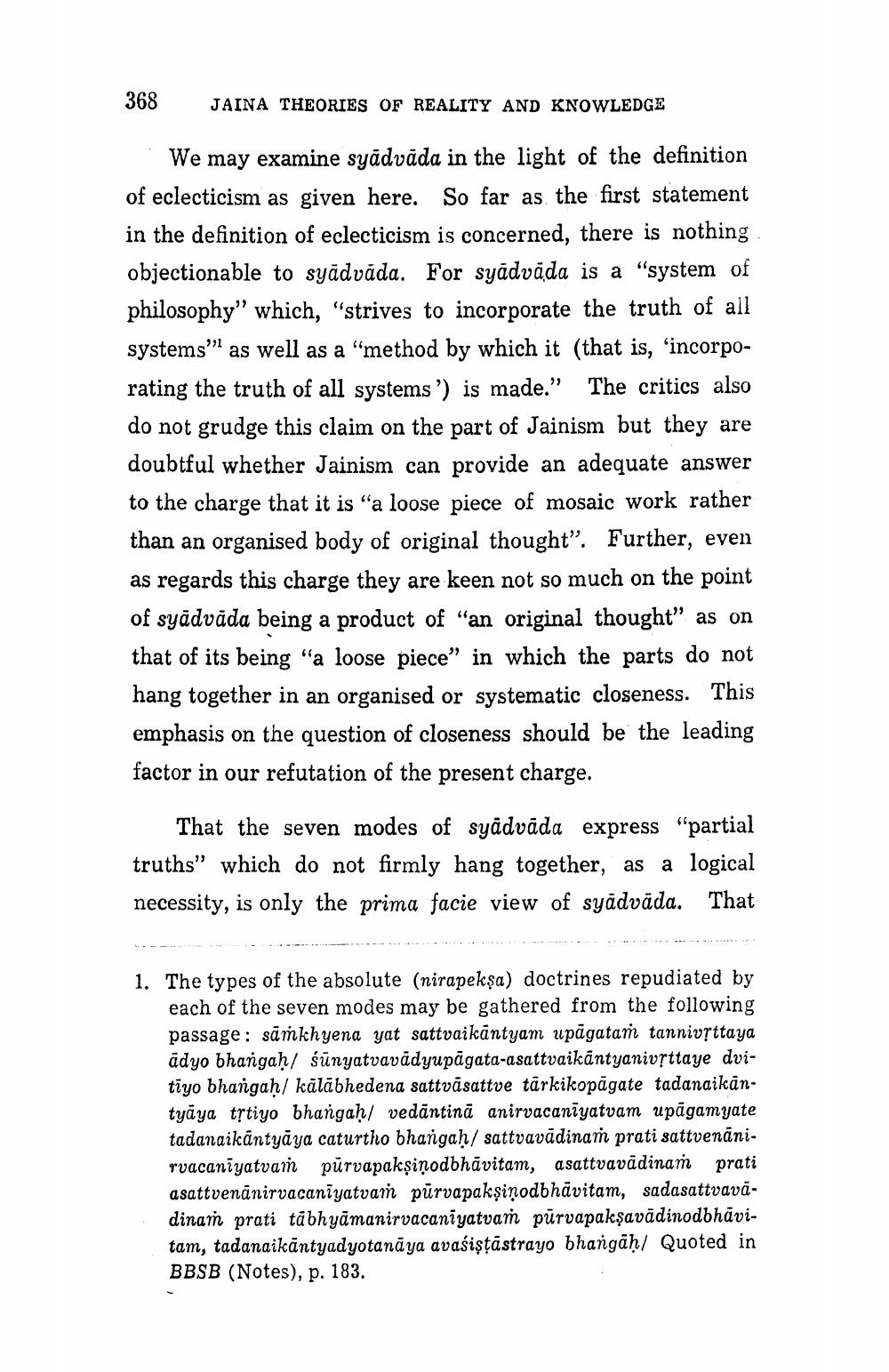________________
368
JAINA THEORIES OF REALITY AND KNOWLEDGE
We may examine syādvāda in the light of the definition of eclecticism as given here. So far as the first statement in the definition of eclecticism is concerned, there is nothing objectionable to syādváda. For syādvāda is a “system of philosophy" which, "strives to incorporate the truth of all systems” as well as a "method by which it (that is, 'incorporating the truth of all systems ') is made.” The critics also do not grudge this claim on the part of Jainism but they are doubtful whether Jainism can provide an adequate answer to the charge that it is a loose piece of mosaic work rather than an organised body of original thought". Further, even as regards this charge they are keen not so much on the point of syödvāda being a product of "an original thought” as on that of its being “a loose piece” in which the parts do not hang together in an organised or systematic closeness. This emphasis on the question of closeness should be the leading factor in our refutation of the present charge.
That the seven modes of syādvāda express "partial truths” which do not firmly hang together, as a logical necessity, is only the prima facie view of syādvāda. That
1. The types of the absolute (nirapeksa) doctrines repudiated by
each of the seven modes may be gathered from the following passage: samkhyena yat sattvaikantyam upāgatam tannivȚttaya adyo bhangah/ śūnyatvavädyupāgata-asattvaikāntyanivsttaye dvitiyo bhangaḥ/ kālābhedena sattväsattve tärkikopāgate tadanaikān. tyāya tstiyo bhangah/ vedāntinā anirvacanīyatvam upāgamyate tadanaikāntyāya caturtho bhangah/ sattvavadinam prati sattvenāni. rvacanīyatvaṁ pūrvapakșiņodbhāvitam, asattvavādinań prati asattvenānirvacanīyatvar pūrvapakşiņodbhāvitam, sadasattvavădinaṁ prati tābhyāmanirvacaniyatvaṁ pūrvapakşavādinodbhāvitam, tadanaikāntyadyotanāya avasiştāstrayo bhangāḥ/ Quoted in BBSB (Notes), p. 183.




